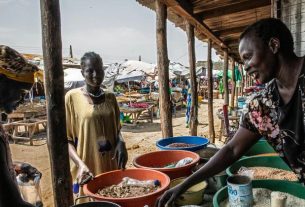In a statement concluding a 12-day visit there, the UN expert group said that reforms including the transition to an accusatory criminal procedure, adherence to international human rights laws and introduction of a National Registry of Detentions, and an increasingly human-rights centred legal system are significant achievements.
‘Catalyst for ill-treatment’
However, they noted that “these steps should be consolidated for the benefit of all people living or transiting through Mexico.”
They added that “arbitrary detention remains a widespread practice in Mexico and is too often the catalyst for ill-treatment, torture, enforced disappearance and arbitrary executions,” they said.
The Working Group delegation visited 15 places of detention including in Mexico City, Nuevo León and Chiapas. They met with the authorities, judges, human rights commissions, civil society representatives and other stakeholders.
Despite the legal reforms encouraged by the Working Group and the Inter-American Court of Human Rights, they stated that “the excessive use of pre-trial detention persists, and it remains mandatory under the Mexican Constitution for an extensive list of crimes.”
“Arraigo, a system that authorizes the detention of a person for up to 80 days without charges being brought against them, although decreasing in use, also remains available under the Constitution. Mandatory pre-trial detention and arraigo must be abolished as soon as possible,” the experts added.
Prevention and accountability
According to the Working Group delegation, the Mexican Armed Forces, National Guard and State and municipal agencies have been frequently implicated in arbitrary detentions. “They lack the civilian and independent controls necessary to ensure prevention and accountability.”
“We are aware of the huge challenges that Mexico is facing, especially in the context of organised crime and the efforts made by the authorities in this regard,” the experts noted.
The independent human rights experts added that “excessive use of force, especially from the moment of apprehension until detainees are presented to a judicial authority, is frequent.”
Ongoing torture
“In many cases, torture and other forms of ill-treatment are inflicted to extract confessions and incriminating statements,” the experts said, noting that “Delays between the moment of apprehension and surrender of the person to the Public Prosecutor’s Office and subsequent transfer to the judicial authority heighten the risk of serious human rights violations during this critical period.”
On the issue of detaining migrants in transit, the experts said that Mexico must ensure that it is “a last resort, for the shortest possible time, following an individualised assessment, in dignified conditions and with access to legal assistance.”
The Working Group is part of what is known as the Special Procedures of the Human Rights Council. Special Procedures, the largest body of independent experts in the UN Human Rights system. Experts work on a voluntary basis; they are not UN staff and do not receive a salary for their work.


